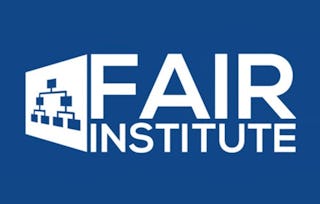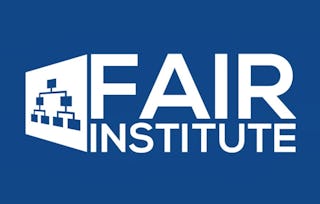This comprehensive course is designed to guide executives in effectively integrating the FAIR model into their cyber risk management programs, ensuring their strategies remain adaptable in the face of evolving threats. Participants will learn how to leverage FAIR to evaluate new technologies, enhance existing risk assessment frameworks, and build robust, effective risk management strategies. The course delves into the nuances of various risk management frameworks, distinguishing between technical and governance approaches. Additionally, participants will explore ancillary FAIR standards for controls, third-party risk, and automation, gaining insights into how these can complement and strengthen their overall risk management efforts. The course concludes with strategies for continuously improving cyber risk management programs, ensuring they evolve to meet emerging threats and organizational needs.

Advancing FAIR™ within Risk Management Programs

Advancing FAIR™ within Risk Management Programs
This course is part of Cyber Risk Management for Executives Specialization


Instructors: FAIR Institute
Included with
Skills you'll gain
- Benchmarking
- Program Implementation
- Risk Management
- Governance Risk Management and Compliance
- Risk Control
- Business Risk Management
- Risk Analysis
- Cybersecurity
- Cyber Security Strategy
- Continuous Monitoring
- Cyber Risk
- Governance
- Automation
- Risk Modeling
- Threat Management
- Risk Appetite
- Enterprise Risk Management (ERM)
- Skills section collapsed. Showing 9 of 17 skills.
Details to know

Add to your LinkedIn profile
14 assignments
See how employees at top companies are mastering in-demand skills

Build your subject-matter expertise
- Learn new concepts from industry experts
- Gain a foundational understanding of a subject or tool
- Develop job-relevant skills with hands-on projects
- Earn a shareable career certificate

There are 3 modules in this course
This module focuses on advancing cyber risk management programs through the FAIR model. Participants will learn how to integrate FAIR into existing frameworks, evaluate new technologies, and build effective risk management programs.
What's included
6 videos8 readings6 assignments6 discussion prompts
This module delves into the ancillary standards associated with the FAIR framework, focusing on their practical applications in enhancing various aspects of risk management. Participants will explore the FAIR Institute's standards, including FAIR-CAM (Controls Analytics Model), FAIR-TAM (Third-Party Risk Management), and the automation of FAIR processes. The module provides insights into how these standards can be leveraged to improve risk evaluation, control effectiveness, and third-party risk management.
What's included
3 videos6 readings4 assignments6 discussion prompts
This module is dedicated to advancing cyber risk management programs through continuous improvement using the FAIR model. Participants will learn how to define clear objectives, set risk tolerance levels, and effectively adopt the FAIR model within their organizations. The module emphasizes ongoing enhancement and adaptation of risk management strategies to ensure alignment with evolving business needs and risk landscapes.
What's included
4 videos5 readings4 assignments2 discussion prompts
Earn a career certificate
Add this credential to your LinkedIn profile, resume, or CV. Share it on social media and in your performance review.
Offered by
Explore more from Business Strategy

FAIR Institute

FAIR Institute
Why people choose Coursera for their career

Felipe M.

Jennifer J.

Larry W.

Chaitanya A.

Open new doors with Coursera Plus
Unlimited access to 10,000+ world-class courses, hands-on projects, and job-ready certificate programs - all included in your subscription
Advance your career with an online degree
Earn a degree from world-class universities - 100% online
Join over 3,400 global companies that choose Coursera for Business
Upskill your employees to excel in the digital economy
Frequently asked questions
To access the course materials, assignments and to earn a Certificate, you will need to purchase the Certificate experience when you enroll in a course. You can try a Free Trial instead, or apply for Financial Aid. The course may offer 'Full Course, No Certificate' instead. This option lets you see all course materials, submit required assessments, and get a final grade. This also means that you will not be able to purchase a Certificate experience.
When you enroll in the course, you get access to all of the courses in the Specialization, and you earn a certificate when you complete the work. Your electronic Certificate will be added to your Accomplishments page - from there, you can print your Certificate or add it to your LinkedIn profile.
Yes. In select learning programs, you can apply for financial aid or a scholarship if you can’t afford the enrollment fee. If fin aid or scholarship is available for your learning program selection, you’ll find a link to apply on the description page.
More questions
Financial aid available,


